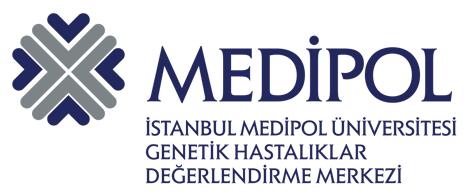Covid-19 Test
General Information
Corona viruses are single stranded, positive polarity enveloped RNA viruses. They have rod-like extensions on their surface.
Cases of pneumonia of unknown etiology were reported on 31 December 2019 in Wuhan City, China. It was later identified as a new coronavirus that was not previously detected in humans on January 7, 2020. After this date, the number of patients increased rapidly, and the disease was seen in healthcare workers. The disease spread rapidly due to its ability to spread from person to person. The first COVID-19 case in our country was detected on March 11, 2020.
Covid-19 is a disease caused by a new coronavirus, SARS CoV 2. The disease is transmitted mainly by droplets. In addition, the droplets emitted through coughing and sneezing by sick individuals are transmitted by touching the mouth, nose or eye mucosa after contact with other people’s hands.
It begins 1-2 days before the onset of viral shedding symptoms, and the viral load reaches its peak during the onset of symptoms in throat swabs and decreases rapidly within the first seven days but may extend beyond the second week.
Symptoms
Common signs of infection are respiratory symptoms, fever, cough and dyspnea. Symptoms such as headache, sore throat, runny nose, muscle and joint pain, extreme weakness, loss of sense of smell and taste, diarrhea can also be seen. Although the disease can be asymptomatic, in severe cases, pneumonia, severe acute respiratory tract infection, kidney failure and even death may develop.
Variants
Many variants have been described to date, mainly in England, Brazil and South Africa.
Diagnosis
The gold standard in the diagnosis of COVID-19 infection is the demonstration of SARS-CoV-2 RNA in clinical samples with nucleic acid amplification tests. The most widely used method is real-time reverse transcriptase-polymerase chain reaction (RT-PCR). Clinical samples can be studied as Nasopharyngeal (NF) swab sample, Oropharyngeal swab sample (OF), Combined swab sample (NF + OF) and lower respiratory tract samples.
SARS CoV 2 Antigen tests
Virus-specific proteins are investigated by antigen tests. Its accuracy is lower than that of the RT-PCR test, so its results need to be confirmed by a PCR test. More reliable results can be obtained with antigen tests if they are performed within 1-2 days before and 5 days after the onset of symptoms, due to their need for a high virus load. Serum sample can be studied as a clinical sample.
As Istanbul Medipol University Genetic Diagnosis Center, Covid-19 started its studies on March 23, 2020. In 2020, approximately 300 thousand Covid 19 RT-PCR tests were performed in our institution. Our RT-PCR studies continue.

